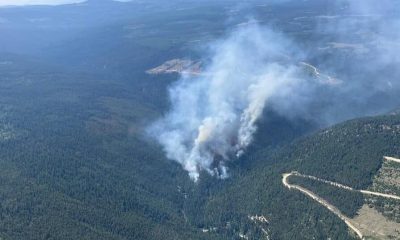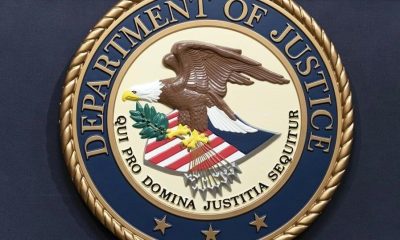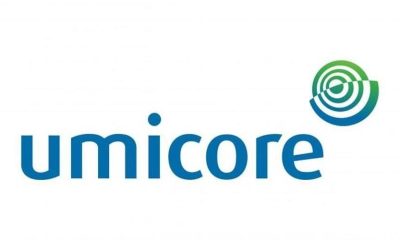Politics
Mark Holland makes a case for a more human approach to politics
“This place needs to be more human,” Government House leader Mark Holland told a House of Commons committee during highly personal testimony on Tuesday.
In a narrow sense, Holland was making a case for the continued use of the “hybrid” arrangement that Parliament adopted shortly after the pandemic upended Canada and the world in 2020. At the most acute stages of the pandemic, allowing MPs to speak and vote remotely was a matter of safety. Looking forward, an openness to virtual participation could allow MPs to better balance their democratic duties with their personal lives.
In that respect, the conversation taking place in Parliament is not unlike the discussion that many workplaces have had about remote work.
But it’s also possible that everything about our politics could stand to be more human — and that part of what ails modern politics is a lack of humanity.
“I think it would really miss what I’m trying to say to think it’s just about hybrid,” Holland said in a follow-up interview with CBC’s Rosemary Barton that airs on Sunday.
“I think that there is something broken in our discourse, there’s something broken in how [MPs] treat each other … and how we talk to each other about what we do.”
Although politicians are (with rare exceptions) — human beings, and although the debates they have and the policies they enact have very real implications for very real people, politicians don’t always act or seem like normal people.
That’s why moments of raw humanity — such as Holland’s testimony on Tuesday — are often seen as revelations. It’s not for nothing that commentators sometimes talk about efforts to “humanize” a politician.
Some of this might be unavoidable — the job is necessarily performative. Politicians are expected to lead and convey messages. They are a voice for others. To some extent, they have to entertain. They face constant and unforgiving media scrutiny.
Theatrics over humanity
As Holland noted, MPs spend their weekends racing around their ridings, going from one community event to another.
In short, there are many things about the life of a politician that would not be considered “normal” by most normal people. But politicians can also be captured by their own theatrics.
Consider, for instance, question period.
“I think we’re all seized with the decline in the quality of discourse, the incredibly aggressive and partisan nature in the way we question each other and interact with one another,” Holland said at another point during Tuesday’s committee hearing.
“… For most people watching, it doesn’t appear that we’re really acting like human beings, that we seem to be more interested in our partisan interest rather than the fact that we’re people who are attempting to do our best.”
For these and other reasons, it’s easy to be cynical about politics. It’s too often treated like entertainment or sport. But social media may have now reduced it to a video game — turning politicians and other voters into disembodied characters to fight or mock or get mad at.
Research in the United States has found that Republican and Democratic voters dehumanize each other. They also assume that the other side takes an even dimmer view of them.
And though there may be several forces driving the toxicity that has shown up recently in Canadian politics — including the threats and harassment directed at politicians and journalists — it’s worth considering whether politicians’ own disconnection and a certain lack of apparent humanity is at least partly to blame.
Perhaps what we’ve lacked over the last few years are forums where — unlike question period or social media— voters and their leaders can act and interact like normal people.
Discord and theatrics in politics are inevitable and, to some degree, healthy. But in the continuing conversation about the future of liberal democracy, it’s worth reflecting on the value of politicians and voters seeing each other as fellow humans.
News
Speculation Grows Around Pennsylvania Gov. Josh Shapiro as Potential Running Mate for Kamala Harris

With President Biden ending his re-election bid, there’s growing chatter that Pennsylvania Gov. Josh Shapiro could be a potential running mate for Vice President Kamala Harris.
Why it matters: Shapiro, who’s positioned himself as a moderate Democrat, has many advantages for a national ticket, including representing a pivotal swing state that former President Trump’s campaign has indicated will be central to their campaign strategy.
The former state lawmaker and attorney general has decades of political experience, and some swing voters view Shapiro as Democrats’ next rising star.
The big picture: Shapiro is among several Democratic governors getting attention for the VP spot, as well as North Carolina Gov. Roy Cooper, Michigan Gov. Gretchen Whitmer, Illinois Gov. J.B. Pritzker, and Kentucky Gov. Andy Beshear.
Some Democratic officials and operatives have even floated Shapiro’s name as a presidential contender should delegates and party members decide Harris isn’t the strongest opponent to take on Trump. As of Sunday, no major Democratic lawmaker had indicated their intention to challenge Harris for the party’s nomination.
Reality check: Democrats are unlikely to leapfrog Harris in favour of another candidate for several reasons — including the millions of dollars held in the Biden-Harris war chest that could easily be given to her, but not to any other potential candidate.
Catch up quick: President Biden announced in a letter posted on his X account Sunday he’s stepping aside as the presumptive Democratic nominee for the 2024 presidential contest and endorsing Harris.
Biden, who has been in Rehoboth, Delaware, since last week recovering from COVID-19, faced intense pressure to withdraw from the race following his shaky debate performance on June 27 against Trump. Harris is emerging as the leading contender weeks before the Democratic National Convention on Aug. 19, but some advisers worry the VP’s record may not outweigh her years-long battle with public image and low favorability ratings, Axios’ Avery Lotz reports.
What they’re saying: “I will do everything I can to help elect Kamala Harris as the 47th President of the United States,” Shapiro said in a post on X Sunday.
“I’ve known Kamala Harris for nearly two decades — we’ve both been prosecutors, we’ve both stood up for the rule of law, we’ve both fought for the people and delivered results,” Shapiro wrote in a statement. “She has served this country honorably as Vice President and she is ready to be President.” When speculation was swirling before Biden stepped aside, Shapiro said he was committed to staying put as Pennsylvania governor.
His spokesperson Manuel Bonder told Axios earlier this month that any scenario of the governor replacing Biden or becoming Harris’ VP pick was “baseless speculation” and a “distraction” that doesn’t help Democrats “defeat Donald Trump at the ballot box.”
Zoom in: Shapiro, a first-term governor, has navigated the state’s divided government and could appeal to constituents in Philadelphia’s purple suburbs.
Shapiro has been outspoken about the ongoing war in Gaza and was credited for his leadership in getting I-95 reopened in less than two weeks after a deadly collapse.
Between the lines: St. Joseph’s professor emeritus and political commentator Randall Miller tells Axios that Shapiro is better off remaining at the helm in Pennsylvania and positioning himself to run in the next cycle. He could decimate future political prospects by joining a potentially “sinking ship.” “He’s very independent, very shrewd,” Miller said. “He has a controlled, directed ambition. He doesn’t need to do it.”
What’s next: Harris will not automatically pick up Biden’s delegates, meaning her road ahead has to focus on accumulating a majority at the DNC.
Politics
Kamala Harris: A California Political Odyssey
Politics
Is Ivanka Trump plotting a return to politics

If you’re a woman freaking out about the imminent possibility of another Trump term, don’t despair quite yet. Yes, Project 2025 is hoping to turn the US into a Christian nationalist country. Yes, JD Vance, Donald Trump’s running partner, has been primed for the job by Peter Thiel, a man who has mused that women having the vote is problematic. Yes, experts are raising the alarm that “a Trump-Vance administration will be the most dangerous administration for abortion and reproductive freedom in this country’s history.” But it’s not all doom and gloom: there may well be a beacon of light and female liberation coming into the White House as well. Signs suggest Ivanka Trump is considering a return to politics. Ladies and gentlewomen, the patron saint of female empowerment may selflessly serve us once again!
To be clear: the younger Trump hasn’t explicitly said that she’s interested in another go at being Daddy’s special adviser. In fact, she’s spent the last few years getting as far away from politics as possible. A renaissance woman, Trump has sold everything from handbags to shoes to real estate – but her most valuable product has always been herself. The former first daughter has always been very careful about protecting her personal brand. And, for a while, that meant staying well clear of her father.
With Donald Trump now formally the nominee, it can be hard to remember just how bad things looked for the former president a couple of years ago. After an underwhelming performance by GOP candidates in the 2022 midterm elections, a lot of Trump’s former acolytes started turning on him. High-profile Republicans complained that Trump was a drag on the party. Even the New York Post, once Trump’s personal Pravda, thought he was a joke: “TRUMPTY DUMPTY”, a post-midterm front page crowed. And then, of course, there were Trump’s mountains of legal problems. A lot of people wrote Trump off.
Ivanka was noticeably not by her father’s side during his hours of need. The moment that Donald got kicked out of the White House, Ivanka and her husband, Jared Kushner, followed him to Florida but kept a safe distance from the political goings on at Mar-a-Lago. Can’t have an insurrection ruining one’s image, after all.
A company called College Hunks Hauling Junk helped them clear out their DC mansion and the pair decamped to Miami’s “Billionaire Bunker”. They didn’t go empty-handed, of course. The couple reported between $172m and $640m in outside income while working in the White House and Saudi Arabia gave Kushner’s private equity firm $2bn to invest. Enough to keep them busy for a while.
For a long time, Javanka stayed fairly under the radar. Ivanka Trump would pop up in headlines now and again in Fun-loving Mother and Caring Philanthropist mode. Behold, a flattering headline about Ivanka helping deploy medical supplies and meals to Ukraine! Look: here’s an Instagram slideshow of the whole family skiing! Now here’s a fun picture of the Javanka family at the flashy Ambani wedding!
A cynic might say these carefully curated images were designed to humanize Trump and erase her messy political past. Aiding this was a consistent drip-drip of mysterious sources telling the press that Javanka had no desire whatsoever to return to politics. Even this year, when Donald Trump became the presumptive nominee, media “sources” kept insisting that the former first daughter wanted nothing to do with the White House. “She is very happy, living her best life,” a source told People in March. “She left politics totally in the rearview mirror and so this time around, even if her dad is the leading Republican candidate, she basically doesn’t care. She told him when he said he was going to run again that she didn’t want to be involved.”
Mary Trump, the woman who has made a career out of being Donald Trump’s disgruntled niece after a legal battle over her inheritance, has been blunt about why Ivanka seems to have retreated from politics. “I think Ivanka made very clear that she doesn’t get enough out of [her relationship with her father] any more,” Mary Trump told CNN at the end of May. “She’s barely been heard from for months; she could not be bothered to show up at [her father’s] trial [over falsifying business records].”
As the election inches closer, however, Ivanka seems to have reassessed the value of her relationship with her father. In early May, the media outlet Puck reported that she was “warming to the idea of trying to be helpful again … She’s not like ‘Hell no’ any more”. A similar report from Business Insider soon followed: according to a “friend of Ivanka”, the entrepreneur wasn’t ruling politics out. A spokesperson for the couple told Puck that this was all nonsense but rumours of a political comeback kept mounting.
Then, a couple of weeks ago, Ivanka jumped back into the spotlight with an appearance on Lex Fridman’s highly influential podcast. (Fridman has more than 4 million subscribers on YouTube.) In this she opened up about how working at the White House was “the most extraordinary growth experience of my life” and how privileged she was to have been asked by her father to help so many people. During the conversation, she also carefully recapped some of (what’s she’s claimed as) her key achievements in the White House, such as boosting the child tax credit. It wasn’t so much an interview as it was a hype project by a friend. It felt lot like it was teasing Trump’s return to political life should her dad be re-elected.
So, after years in the Floridian wilderness, has the Maga Princess officially returned to the family fold? It’s a tad too early to tell but it increasingly looks that way. As one would expect, Trump has spent the last few days close to her father after the attempt on his life: she’s very much thrown herself into the role of doting daughter again.
And while Ivanka has been absent from the Republican national convention so far, she and Jared are expected to be at Donald’s side on Thursday when he formally accepts the party’s nomination. And if that happens and images of Ivanka standing next to her father hit the headlines, it won’t just be a celebratory photoshoot – it’ll be a preview of Trump’s second term.

-

 News4 hours ago
News4 hours agoAfter grind of MLS regular season, Toronto FC looks forward to Leagues Cup challenge
-

 News19 hours ago
News19 hours agoCanadaNewsMedia news July 26, 2024: B.C. crews wary of winds boosting wildfires
-

 News10 hours ago
News10 hours agoOntario expanding access to RSV vaccines for young children, pregnant women
-

 News5 hours ago
News5 hours agoIn President Milei’s sit-down with Macron, Argentina says the leaders get past soccer chant fallout
-

 News20 hours ago
News20 hours agoFrench train lines hit by ‘malicious acts’ disrupting traffic ahead of Olympics, rail company says
-

 News18 hours ago
News18 hours agoPeople should stay inside, filter indoor air amid wildfire smoke, respirologist says
-

 News13 hours ago
News13 hours agoFederal grand jury charges short seller Andrew Left in $16M stock manipulation scheme
-

 News4 hours ago
News4 hours agoUmicore suspends construction of $2.76B battery materials plant in Ontario































